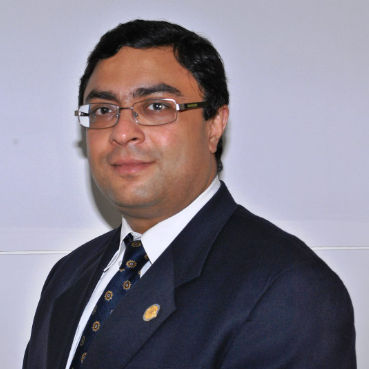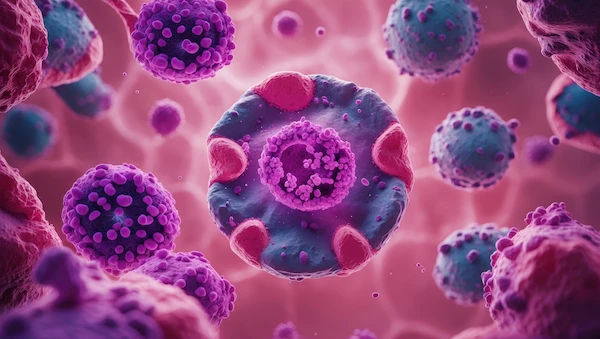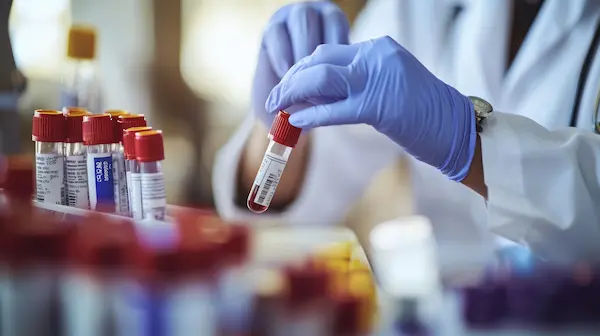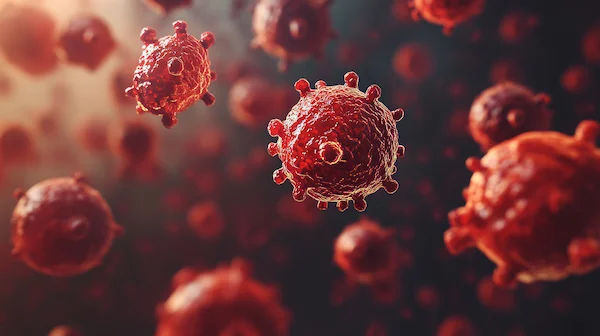What Are Treatments Available Blood Cancer?
Explore comprehensive blood cancer treatment options including chemotherapy, radiation, targeted therapy, immunotherapy, CAR T-cell therapy, and stem cell transplant. Learn about supportive care, pediatric vs adult pathways, emerging trends, and FAQs.

.webp?tr=q-80,f-webp,w-350,dpr-2,c-at_max 700w)
Introduction
Hearing the words “blood cancer” can feel overwhelming—but the good news is that more treatments are available today than ever before. From time-tested chemotherapy and radiation to cutting-edge targeted therapies, CAR T‑cell therapy, and precision medicine, care has advanced dramatically for leukaemia, lymphoma, and multiple myeloma. This guide breaks down the cancer treatments available for blood cancer in clear, practical language. You’ll learn how each option works, who it’s for, what to expect, and how to combine treatments safely with daily life. We’ll also cover side-effect management, long-term follow-up, and questions to ask your care team so you can make informed, confident decisions. Throughout, you’ll see real-world examples, the latest data from authoritative sources, and tips on accessing care.
If you’re experiencing persistent symptoms such as unexplained fatigue, fever, night sweats, enlarged lymph nodes, easy bruising, recurrent infections, or bone pain, consult a doctor. If symptoms persist beyond two weeks, consult a doctor online with Apollo 24|7 for further evaluation. Where lab tests are indicated (such as a complete blood count), Apollo 24|7 offers convenient home collection services for many tests. Let’s explore what’s changed—and what’s possible—when it comes to blood cancer treatments available today.
Understanding Blood Cancers at a Glance
Here's a quick overview of blood cancers:
Blood cancers start in the bone marrow, blood, or lymphatic system and fall into three main groups: leukaemia, lymphoma, and multiple myeloma. Leukaemias involve abnormal white blood cells crowding out healthy cells in the marrow and blood. Lymphomas begin in the lymph nodes or lymphatic tissues. Myeloma arises from plasma cells in the bone marrow. While these conditions share a broad category, their biology and behavior differ, which is why the cancer treatments available vary widely by subtype.
- Leukaemia includes acute forms (ALL, AML) that progress quickly and chronic forms (CLL, CML) that often progress slowly. Acute leukaemias typically need urgent treatment; chronic leukaemias may be monitored first (“watchful waiting”).
- Lymphoma divides into Hodgkin lymphoma (often highly curable) and non-Hodgkin lymphoma (NHL), which includes many subtypes ranging from very slow-growing to aggressive.
- Multiple myeloma affects bones, kidneys, and immune function. It’s typically managed with combinations of drugs and may involve stem cell transplant.
Why type and stage matter: The specific subtype, stage, and genetic features guide which treatments are most effective. For example, imatinib and related drugs revolutionised CML survival by targeting BCR‑ABL. For most people, the path to the right therapy begins with accurate diagnosis, staging, and molecular testing—so you and your team can select the best-fit approach.
Consult Top Specialists
How Doctors Choose the Best Treatment Plan
Here's what influences treatment decisions:
Choosing among the cancer treatments available isn’t one-sise-fits-all. Your plan is built from three pillars: diagnostic work-up, risk assessment, and personal goals.
- Diagnostic tests and biomarkers: A complete blood count (CBC), peripheral smear, bone marrow biopsy, flow cytometry, cytogenetics (karyotyping), and molecular tests help define disease subtype and risk. Imaging (CT, PET-CT) assesses lymphomas. Where appropriate, Apollo 24|7 offers home collection for tests like CBC to begin the evaluation process. Definitive tests such as bone marrow biopsy are done in-hospital.
- Risk stratification: Systems like the International Prognostic Scoring System for myeloma, IPS for Hodgkin lymphoma, and ELN risk in AML classify disease risk to inform intensity and choice of therapy.
- Patient factors: Age, fitness, other medical conditions, infection risk, and fertility goals influence decisions. Quality of life and time commitments (e.g., frequent clinic visits for infusions) also matter.
- When watchful waiting is right: In indolent NHL and early-stage CLL without symptoms or organ compromise, careful monitoring can be safer than immediate treatment. This approach reduces exposure to side effects without impacting survival in selected patients.
Chemotherapy and Radiation: The Foundations
Here's how these foundational treatments work:
- Chemotherapy remains a cornerstone, particularly for acute leukaemias and some aggressive lymphomas. For AML and ALL, intensive chemo regimens aim to achieve remission by rapidly killing dividing cells. In aggressive NHL (like diffuse large B‑cell lymphoma), R‑CHOP—a combination of chemo plus rituximab—is often first-line, with cure possible for many. In myeloma, chemo is now often paired with targeted/immune agents rather than used alone.
- Radiation therapy plays a supportive or primary role in selected scenarios: localised lymphoma, symptom relief (e.g., painful bone lesions in myeloma), or as part of conditioning before stem cell transplant. Modern techniques target disease more precisely while sparing healthy tissues.
- Side effects vary by regimen but may include fatigue, nausea, hair loss, low blood counts (raising infection and bleeding risk), and mucositis. Supportive medications—antiemetics, growth factors (G‑CSF), antibiotics, and transfusions—help manage risks. Many centers deliver chemo as outpatient when safe, supported by close monitoring.
- Case example: In ALL, pediatric-inspired regimens improved outcomes in some young adults. For AML, liposomal daunorubicin/cytarabine (CPX‑351) improved survival in therapy-related AML or AML with myelodysplasia-related changes compared with standard “7+3,” informing treatment selection in higher-risk groups.
Targeted Therapies: Treating the Cancer’s Weak Spots
Here's how targeted therapies work:
Targeted therapies home in on molecular pathways that cancer cells rely on, often leading to higher effectiveness with fewer off-target effects.
- CML: BCR‑ABL tyrosine kinase inhibitors (TKIs) like imatinib, dasatinib, and nilotinib transformed CML from life-threatening to a chronic, highly manageable condition for many.
- CLL and some lymphomas: BTK inhibitors (ibrutinib, acalabrutinib, zanubrutinib) and BCL2 inhibitor venetoclax (often with antibodies like obinutuzumab) deliver deep remissions, frequently with oral regimens.
- AML: FLT3 inhibitors (midostaurin, gilteritinib) and IDH1/2 inhibitors (ivosidenib, enasidenib) are added to chemo or used for relapse with targetable mutations.
- Myeloma: Proteasome inhibitors (bortezomib, carfilzomib), IMiDs (lenalidomide, pomalidomide), and newer agents like selinexor target myeloma cell survival pathways.
Genomic testing is essential. It guides whether a targeted therapy is indicated now or reserved for relapse. For instance, venetoclax-based regimens have strong efficacy in CLL and in some AML combinations, while BTK inhibitors can be preferable in certain CLL settings.
Immunotherapy: Empowering Your Immune System
Here's how immunotherapy works:
Immunotherapies enlist the immune system to recognise and destroy cancer cells.
- Monoclonal antibodies: Rituximab contributed to dramatic improvements in many B-cell lymphomas and CLL. Daratumumab and isatuximab are key in myeloma combinations. In Hodgkin lymphoma, brentuximab vedotin is an important option.
- Checkpoint inhibitors: Nivolumab and pembrolizumab are effective in relapsed/refractory Hodgkin lymphoma and under study in other blood cancers.
- Bispecific antibodies: These “two-headed” antibodies bring T cells into close contact with cancer cells to trigger killing. They can be “off-the-shelf” alternatives or bridges to transplant/CAR T in myeloma and some lymphomas.
- Adverse effects vary: infusion reactions, low blood counts, and for T‑cell engaging therapies, cytokine release syndrome (CRS) and neurotoxicity (ICANS). Experienced centres use step-up dosing and supportive medications to lower risks.
CAR T-Cell Therapy: Reprogrammed Cells as Medicine
Here's what CAR T therapy involves:
CAR T‑cell therapy modifies a patient’s T cells to recognise targets like CD19 or BCMA. After collection and engineering, cells are infused back to hunt cancer.
- Who qualifies: CAR T is typically used after at least one or more prior therapy in aggressive lymphomas, some leukaemias, and relapsed/refractory myeloma. Referral to a specialised centre is required. Durable remissions occur in a meaningful portion of patients with otherwise limited options.
- What to expect: Steps include cell collection, bridging therapy if needed, short chemo for lymphodepletion, then infusion. Hospital observation varies by product and centre protocol. Side effects include CRS and neurotoxicity; most are manageable with timely care.
- Outcomes: In large B‑cell lymphoma, CAR T leads to durable responses in approximately 40–50% of heavily pretreated patients; response rates in myeloma are high initially but long-term durability varies.
Stem Cell Transplant (Bone Marrow Transplant)
Here's what stem cell transplant involves:
Stem cell transplant replaces diseased or damaged bone marrow with healthy cells. There are two forms:
- Autologous transplant (auto): Uses your own stem cells, commonly in multiple myeloma and some lymphomas. It’s not curative in myeloma but can deepen and extend remission.
- Allogeneic transplant (allo): Uses donor cells, allowing for a “graft-versus-leukaemia/lymphoma” effect. It can be curative in select leukaemias, lymphomas, and myelofibrosis but carries higher risks, including graft-versus-host disease (GVHD).
- Timing matters. For high-risk AML in first remission, an allogeneic transplant may offer the best chance for cure. Reduced-intensity conditioning has expanded eligibility to older or less fit patients. Preparation includes thorough organ assessment, infection screening, and caregiver planning.
- Life after transplant includes monitoring for GVHD, infections, and relapse. Vaccination schedules are restarted. Long-term follow-up is critical to manage late effects.
Special Considerations by Disease
Here's a breakdown by blood cancer type:
Leukaemia
- AML: Intensive chemo remains standard for fit patients, with targeted add-ons for FLT3/IDH mutations and CPX‑351 for specific high-risk groups. For older or unfit patients, lower-intensity regimens like azacitidine + venetoclax have improved survival.
- ALL: Multi-phase chemo; targeted agents (e.g., blinatumomab, inotuzumab) and CAR T are options in B-ALL. Tyrosine kinase inhibitors are standard in Ph+ ALL.
- CLL: Watchful waiting for asymptomatic early disease; BTK inhibitors or venetoclax + antibody regimens for treatment indication, with time-limited strategies possible.
- CML: TKIs are mainstay; some patients achieve treatment-free remission under strict criteria.
Lymphoma
- Hodgkin lymphoma: High cure rates with ABVD or similar; brentuximab and checkpoint inhibitors for certain stages or relapsed disease.
- Non-Hodgkin lymphoma: Treatment varies widely—from watchful waiting in indolent lymphomas to R‑CHOP or CAR T‑cell therapy in aggressive subtypes like DLBCL.
Multiple Myeloma
Induction regimens often combine a proteasome inhibitor, IMiD, and steroid; transplant-eligible patients may proceed to autologous transplant. Maintenance (often lenalidomide) prolongs remission. Relapsed disease may use daratumumab, carfilzomib, pomalidomide, selinexor, bispecifics, or CAR T.
Pediatric vs Adult Treatment Pathways
Here's how treatment differs by age:
Children and adolescents often receive different protocols, especially in ALL, where cure rates are among the highest in oncology. Pediatric-inspired regimens have been adapted for young adults with success. Long-term survivorship planning is vital to address growth, fertility, cardiac health, and learning support after therapy. Families should ask about fertility preservation before treatment begins when relevant.
Supportive Care: Staying Well During Treatment
Here's what supportive care includes:
- Blood counts: Growth factors (e.g., G‑CSF) reduce infection risk during chemo; transfusions address anemia or low platelets.
- Infection prevention: Vaccinations (inactivated), antiviral/antibiotic prophylaxis as indicated, and prompt evaluation of fevers are crucial. Your team will guide which vaccines and when.
- Bone health (myeloma): Bisphosphonates reduce fracture risk; dental checks are important to prevent jaw complications.
- Nutrition and activity: Small, frequent meals; hydration; and safe, light activity can reduce fatigue and maintain strength.
- Mental health: Anxiety and low mood are common; counselling, peer support, and mindfulness help.
Side Effects: What’s Common and How to Cope
Here's how to manage side effects:
Short-term effects can include fatigue, nausea, hair loss, mouth sores, diarrhea/constipation, and low blood counts (with infection or bleeding risk). Longer-term effects may involve heart, lung, thyroid, or nerve issues, fertility changes, or secondary cancers, depending on treatment type. CAR T and bispecific therapies carry risks of CRS and neurologic events but are closely monitored and treated promptly.
Practical tips:
- Keep a symptom diary; bring it to appointments.
- Call your team immediately for fever ≥38°C, uncontrolled vomiting/diarrhea, confusion, chest pain, sudden weakness, or bleeding.
- Ask about scalp cooling for hair preservation, mouth rinses for mucositis, and anti-nausea regimens tailored to your chemo.
- Discuss fertility preservation before treatment if desired.
If symptoms persist beyond two weeks or worsen despite home measures, consult a doctor online with Apollo 24|7 for guidance and triage.
Life After Treatment: Follow-Up and Survivorship
Here's what survivorship involves:
- MRD testing: Highly sensitive tests detect tiny amounts of disease and can guide treatment decisions in ALL, CLL, AML, and myeloma.
- Surveillance: Scheduled physical exams, labs, and imaging (when indicated) look for recurrence and late effects.
- Daily life: Gradual return to work or school; individualised exercise plans; sleep hygiene; and nutrition matter.
- Fertility, family planning, and sexual health: Address openly with your team; referrals to specialists can help.
Costs, Access, and Insurance Tips
Here's how to manage treatment costs:
Newer therapies can be expensive. To navigate:
- Verify insurance coverage and preauthorisations early for targeted drugs, CAR T, or transplant.
- Ask about manufacturer support, foundation grants, or hospital financial counsellors.
- Consider clinical trials, which can provide access to novel treatments and close monitoring.
- For oral therapies, ask about specialty pharmacy support and adherence tools.
What’s Next: Emerging Treatments and Trends
Here's what’s coming in blood cancer care:
- Next-gen CAR T: Products aiming for fewer side effects, faster manufacturing, and improved durability; research into allogeneic (“off‑the‑shelf”) CARs is advancing.
- Bispecifics expansion: More agents across lymphoma and myeloma; outpatient step-up dosing protocols maturing.
- MRD-guided therapy: Tailoring duration/intensity based on depth of response.
- Time-limited targeted therapy: Fixed-duration approaches in CLL and beyond.
- Combination strategies: Rational pairing of targeted and immune therapies to overcome resistance.
How to Talk With Your Care Team
Here's how to communicate effectively:
Bring a notebook or use a patient portal for these questions:
- What exactly is my subtype, and which biomarkers were tested?
- Which treatments are available for my case, and what are the goals—cure, long remission, symptom control?
- What side effects should I watch for, and who do I call 24/7?
- Are there clinical trials that fit me now or later?
- How will we monitor response, and what’s the plan if the first treatment stops working?
- What are the costs, and what assistance exists?
Build a support network: caregivers, patient groups, and mental health support. If you need quick medical advice or a second opinion, consult a doctor online with Apollo 24|7.
Consult Top Specialists
Conclusion
Today’s landscape of blood cancer treatments is broader and more hopeful than ever. While chemotherapy and radiation remain essential, many people now benefit from targeted therapies, monoclonal and bispecific antibodies, CAR T‑cell therapy, and stem cell transplant—selected and sequenced based on the cancer’s biology and the person’s goals. Accurate diagnosis, thorough biomarker testing, and honest conversations about benefits, risks, logistics, and cost help ensure the plan fits your life. Supportive care—from growth factors to nutrition and mental health—helps you stay strong during treatment. After therapy, regular follow-up and, when appropriate, MRD testing offer confidence and clarity.
If you’re experiencing symptoms or need guidance interpreting test results or treatment choices, consult a doctor online with Apollo 24|7 for timely advice. If your care plan includes lab monitoring, Apollo 24|7 offers home collection for many tests to keep you on track without extra trips. Whether you’re just starting or considering next steps, remember that you’re not alone. Lean on your care team, ask questions, and consider clinical trials where appropriate. With the right information and support, you can make informed decisions and move forward with hope.
Consult Top Specialists

Dr. Gopal Kumar
Head, Neck and Thyroid Cancer Surgeon
15 Years • MBBS, MS , FARHNS ( Seoul, South Korea ), FGOLF ( MSKCC, New York )
Delhi
Apollo Hospitals Indraprastha, Delhi
(25+ Patients)

Dr Gowshikk Rajkumar
Oncologist
10 Years • MBBS, DMRT, DNB in Radiation oncology
Bengaluru
Apollo Clinic, JP nagar, Bengaluru

Dr. Praveen Kumar Garg
Surgical Oncologist
26 Years • MBBS, M.S.(Gen.Surg.), M.Ch.(OncoSurg.)
Delhi
Apollo Hospitals Indraprastha, Delhi
(50+ Patients)
Dr. B Shravanthi Reddy
Radiation Specialist Oncologist
8 Years • MBBS, DNB(Radiation Oncology)
Manikonda Jagir
Apollo Clinic, Manikonda, Manikonda Jagir

Dr Shaikat Gupta Director Surgical Onco
Surgical Oncologist
35 Years • MBBS (University Gold Medalist), MS, FRCSEd
Kolkata
Apollo Multispeciality Hospitals , Kolkata, Kolkata
(250+ Patients)
Consult Top Specialists

Dr. Gopal Kumar
Head, Neck and Thyroid Cancer Surgeon
15 Years • MBBS, MS , FARHNS ( Seoul, South Korea ), FGOLF ( MSKCC, New York )
Delhi
Apollo Hospitals Indraprastha, Delhi
(25+ Patients)

Dr Gowshikk Rajkumar
Oncologist
10 Years • MBBS, DMRT, DNB in Radiation oncology
Bengaluru
Apollo Clinic, JP nagar, Bengaluru

Dr. Praveen Kumar Garg
Surgical Oncologist
26 Years • MBBS, M.S.(Gen.Surg.), M.Ch.(OncoSurg.)
Delhi
Apollo Hospitals Indraprastha, Delhi
(50+ Patients)
Dr. B Shravanthi Reddy
Radiation Specialist Oncologist
8 Years • MBBS, DNB(Radiation Oncology)
Manikonda Jagir
Apollo Clinic, Manikonda, Manikonda Jagir

Dr Shaikat Gupta Director Surgical Onco
Surgical Oncologist
35 Years • MBBS (University Gold Medalist), MS, FRCSEd
Kolkata
Apollo Multispeciality Hospitals , Kolkata, Kolkata
(250+ Patients)
More articles from Blood Cancer
Frequently Asked Questions
What are the main treatments available for blood cancer?
Options include chemotherapy, radiation, targeted therapy, immunotherapy (monoclonal and bispecific antibodies), CAR T‑cell therapy, and stem cell transplant. The best choice depends on your subtype, stage, and biomarkers (e.g., FLT3, IDH1/2, BCR‑ABL). Ask your team about blood cancer treatment options based on your tests.
Is watchful waiting safe in blood cancers?
Yes—for selected slow-growing diseases like early-stage CLL or indolent lymphoma. Research shows monitoring does not harm survival in appropriate cases, and it avoids side effects until treatment is needed. If symptoms change, consult a doctor online with Apollo 24|7.
How does CAR T‑cell therapy help in lymphoma or leukaemia?
CAR T reprograms your T cells to find and attack cancer. It can produce durable remissions, especially after other treatments. Side effects like cytokine release syndrome are managed at specialised centres. Ask if CAR T cell therapy for lymphoma or leukaemia is right for you.
What is MRD testing and why does it matter?
Minimal residual disease tests detect tiny amounts of cancer after treatment. MRD negativity often predicts longer remissions and may guide therapy duration in ALL, CLL, AML, and myeloma.
Are there financial assistance options for expensive treatments?
Yes. Insurance prior authorisations, manufacturer support programs, foundations, and hospital financial counsellors can help. Clinical trials may provide access to new treatments. Apollo 24|7 can guide you to appropriate resources and referrals.

.webp)


